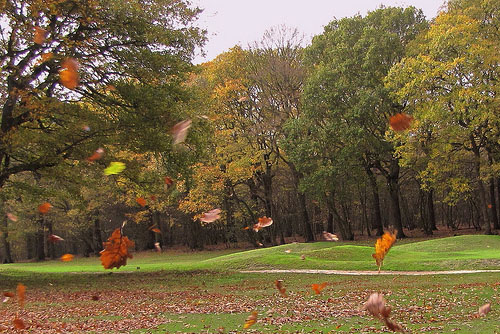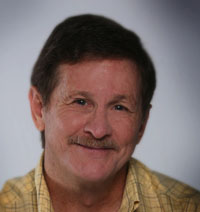Why Was This Story Best Told As A Memoir? – Dan L. Hays
On the first day of my creative writing class, the teacher opened the discussion by asking “What is a story?” She suggested that we begin by defining the word. Several people responded. I took a minute to think about the meaning, and then raised my hand and said “A story is something that happens to someone.” The teacher smiled broadly, nodded, and said “That’s it exactly - at the very basic level, the essence of a story is action.”
So what was the best way to tell a particular story, to describe that action? Over the next several years I read a lot about point of view – mostly looking at first person and third person, and what were the advantages and limitations of each. First person is confined to the thoughts of the narrator. Third person can either be omniscient – using the thoughts of all of the characters, or limited – using the thoughts of one character’s mind. After I experimented with point of view, it became apparent that it depended on the story.
Years later I wrote about a time my Dad’s life when he disappeared for a year, worked the wheat harvest, had a spiritual experience in the process. He returned a changed man. After his death I realized I’d never asked him what happened. I started with the part I knew, leading into what might have taken place later. I decided to make it a novel, and chose the third person omniscient viewpoint. I wrote in a more detached style, which allowed me the distance to step back and imagine the events objectively. I could speak from the perspective of various characters as needed.
When the story was about me, “something that happens to someone” still held true. Something had happened that I wanted to share, and decided to write about it in depth. Not an original concept. Many people have written a memoir for that very reason. The first person viewpoint had an immediacy that helped me capture the emotions and experience of the moment. I wrote about the events surrounding the time of my father’s death 17 years ago.
I knew what happened, and had journalled extensively about it at the time. There was plenty of fodder to refresh my memory of the events. As I wrote I fell into the mode of “I did this, that happened, I felt this about it, I experienced, and then next I …” I was in the middle of the events, with no psychic distance. To tell that particular story, I needed to be that close. Yet as I wrote, I could feel the events at a physical level. My heart raced as I felt unsafe when that strange person entered the room. I smelled the coffee I drank in a restaurant as I chronicled my feelings in a notebook. I felt the heat of Houston on a muggy afternoon in October; heard leaves blowing in the breeze that only stirred up the heat without relief.

Even more happened. I had never written down everything that took place the week my Dad died. I heard the jangle as the phone rang; heard my sister say “better come home, Dad is dying.” I sat in a darkened airplane and wrote brief notes in a small notebook “it’s too soon, I’m not ready for this.” I walked up to a hospital at night in Tulsa, wondering if it was just my imagination because of the lights, or was this huge building really pink?” (I saw it the next day, and sure enough – it was pink.)
I looked down at my father lying in a hospital bed with a tube down his throat, barely heard the nurse saying he was already functionally gone, and the machines were keeping him alive. I returned to the room after the machines had been turned off, and his breathing had stopped. I stroked my father’s forehead, something I never would have dared if he were alive. I walked into to the “Grief Room” at the hospital, where no one was attending to the needs of my family, sitting and crying all alone. I pushed down my feelings because someone had to make funeral arrangements, and the task fell on me.
Later in the week, I visited his office at the hospital, heard his boss describe how he had spent his last several years helping others. I drove just outside Tulsa and walked across his 5 acre pecan orchard, then used his chain saw to cut down a couple of dead trees, a project he and I had shared. I sat at the dinner table at my parent’s house and went through my parent’s financial papers to reassure my Mom. I stepped out in front of a packed church to deliver his eulogy.
Of course it was cathartic to write down those experiences – isn’t that one of the biggest benefits of memoir? I felt the events, experienced them in a deeper way than before, and could release some of the emotional charge they contained.

As the memoir continued I wrote about the events after my Dad died. I met with a minister to discuss an reservoir of old anger I had discovered – anger at my Dad, anger at God. I dreamed a man was chasing me with a gun. I did an inner child exercise, and remembered a violent incident with my Dad when I was a teenager. Then came some intense healing work.
I did an exercise to cut cords to the feelings I was carrying from generations of my family – an ancestral burden that had weighed me down greatly. Many nights I released terror from the violent incident. I relived the violent incident on a feeling level several times. I wrote down ways I had changed, and burned the papers, to let go of who I used to be. I dreamed that there was a tiger living in my house. I knew it was my rage, and had to be dealt with. I made a commitment to release that rage in safe ways. There were a number of other healing experiences, and by the end of the memoir, it all led to a new sense of forgiveness for my father. I wrote down my tremendous gratitude for the whole experience.
Then something happened which I hadn’t envisioned. After I published the memoir, I had numerous people say they benefitted greatly from my experience, from reading about my journey and the steps I had taken to heal. I was genuinely surprised. I hadn’t seen that coming, but was delighted that it happened. That was not the reason for the memoir - it just was something I needed to do. For me it was an enormously healing process. But if writing a memoir could yield additional rewards like that – helping other people heal and grow – then it was a huge success.

Dan L. Hays is the author of the memoir Freedom’s Just Another Word. On the radio, he is the host of the inspirational segments Minute To Freedom, and one of the hosts of Dialogues With Dignity on Blog Talk Radio.
Website: http://www.danlhays.com
Photo Credits:
“Good Question” e-magic @Flickr.com. Creative Commons. Some Rights Reserved.
leaves in the wind: jans canon @flickr.com. Creative Commons. Some rights reserved.
Hyperlink: (link this to the part in blue on the photo credit)
Good question:
http://www.flickr.com/photos/emagic/56206868/in/faves-43422242@N07/
Leaves in the wind:
http://www.flickr.com/photos/43158397@N02/4104605582/in/photostream/